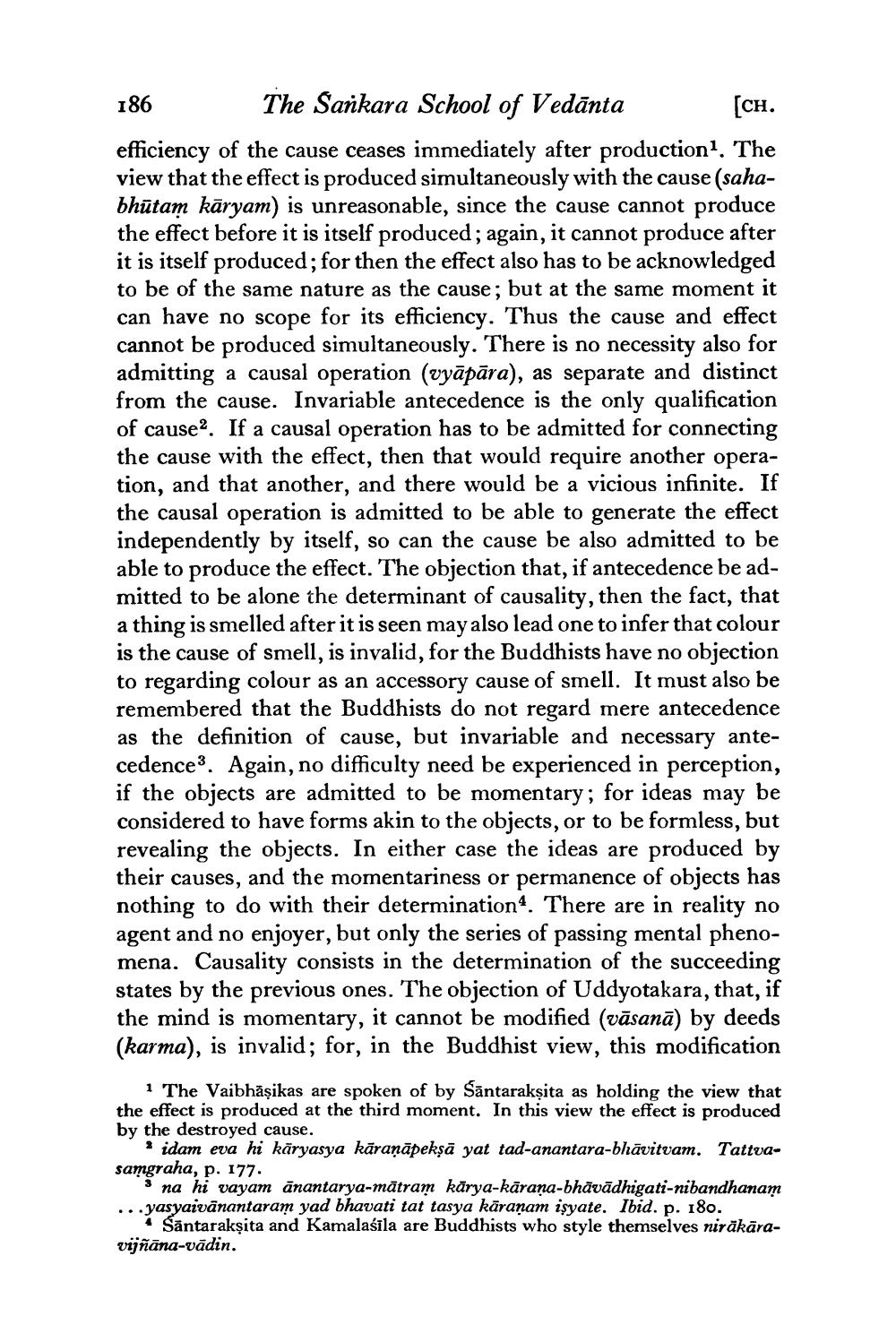________________
The Sankara School of Vedanta
[CH.
efficiency of the cause ceases immediately after production1. The view that the effect is produced simultaneously with the cause (sahabhūtam kāryam) is unreasonable, since the cause cannot produce the effect before it is itself produced; again, it cannot produce after it is itself produced; for then the effect also has to be acknowledged to be of the same nature as the cause; but at the same moment it can have no scope for its efficiency. Thus the cause and effect cannot be produced simultaneously. There is no necessity also for admitting a causal operation (vyāpāra), as separate and distinct from the cause. Invariable antecedence is the only qualification of cause. If a causal operation has to be admitted for connecting the cause with the effect, then that would require another operation, and that another, and there would be a vicious infinite. If the causal operation is admitted to be able to generate the effect independently by itself, so can the cause be also admitted to be able to produce the effect. The objection that, if antecedence be admitted to be alone the determinant of causality, then the fact, that a thing is smelled after it is seen may also lead one to infer that colour is the cause of smell, is invalid, for the Buddhists have no objection to regarding colour as an accessory cause of smell. It must also be remembered that the Buddhists do not regard mere antecedence as the definition of cause, but invariable and necessary antecedence3. Again, no difficulty need be experienced in perception, if the objects are admitted to be momentary; for ideas may be considered to have forms akin to the objects, or to be formless, but revealing the objects. In either case the ideas are produced by their causes, and the momentariness or permanence of objects has nothing to do with their determination. There are in reality no agent and no enjoyer, but only the series of passing mental phenomena. Causality consists in the determination of the succeeding states by the previous ones. The objection of Uddyotakara, that, if the mind is momentary, it cannot be modified (vāsanā) by deeds (karma), is invalid; for, in the Buddhist view, this modification
186
1 The Vaibhāṣikas are spoken of by Santarakṣita as holding the view that the effect is produced at the third moment. In this view the effect is produced by the destroyed cause.
idam eva hi karyasya kāraṇāpekṣā yat tad-anantara-bhāvitvam. Tattvasamgraha, p. 177.
3 na hi vayam ānantarya-mātram kārya-kāraṇa-bhāvādhigati-nibandhanam ...yasyaivānantaram yad bhavati tat tasya kāraṇam işyate. Ibid. p. 180.
Santarakṣita and Kamalaśīla are Buddhists who style themselves nirākāra
vijñāna-vādin.




